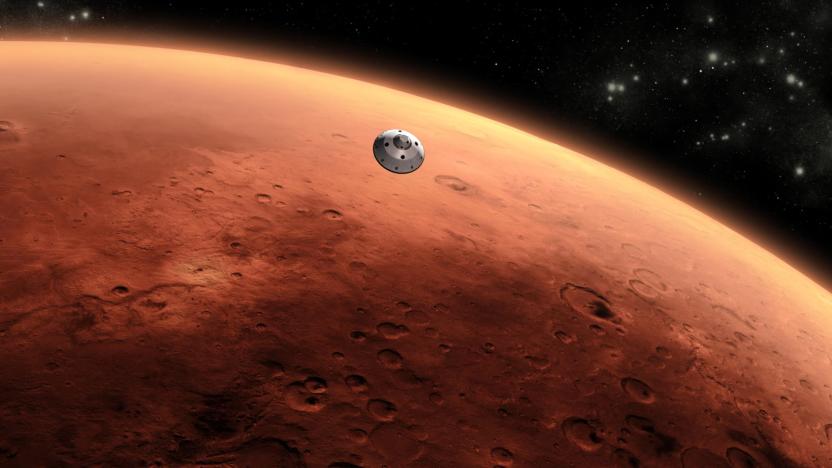UniversityOfColoradoAtBoulder
Latest

Mars' liquid water may have had an atmospheric 'escape route'
Scientists have long believed that Mars lost its liquid water very gradually, turning into a mostly dry planet over an extremely long time frame. However, they may have to toss that assumption out the window. A University of Colorado, Boulder team has discovered that Mars has an atmospheric "escape route" which may have helped hydrogen drift into space at much faster rates. Mars Express data shows that water molecules float higher than usual during the planet's warmer seasons, avoiding an Earth-like "cold trap" that keeps water close to the ground. Once the molecules are in the middle atmosphere, ultraviolet light helps break them up into oxygen and hydrogen -- and since hydrogen is very light, it doesn't take much for the element to escape Mars' gravity.

Light-triggered nanoparticles kill drug-resistant bacteria
Many current attempts at killing drug-resistant "superbugs" amount to racing against time, whether it's improving research technology or developing germ-fighting techniques that are less likely to promote resistance. That's not really an effective long-term strategy, is it? However, University of Colorado scientists might have a more permanent solution. They've developed light-triggered nanoparticles (specifically, quantum dots) that can kill stubborn bacteria on demand. They're dormant when it's dark, but shining the right light wavelength will make the particles attack infected cells. And unlike metal nanoparticles, they won't inadvertently wreck healthy cells in the process.
